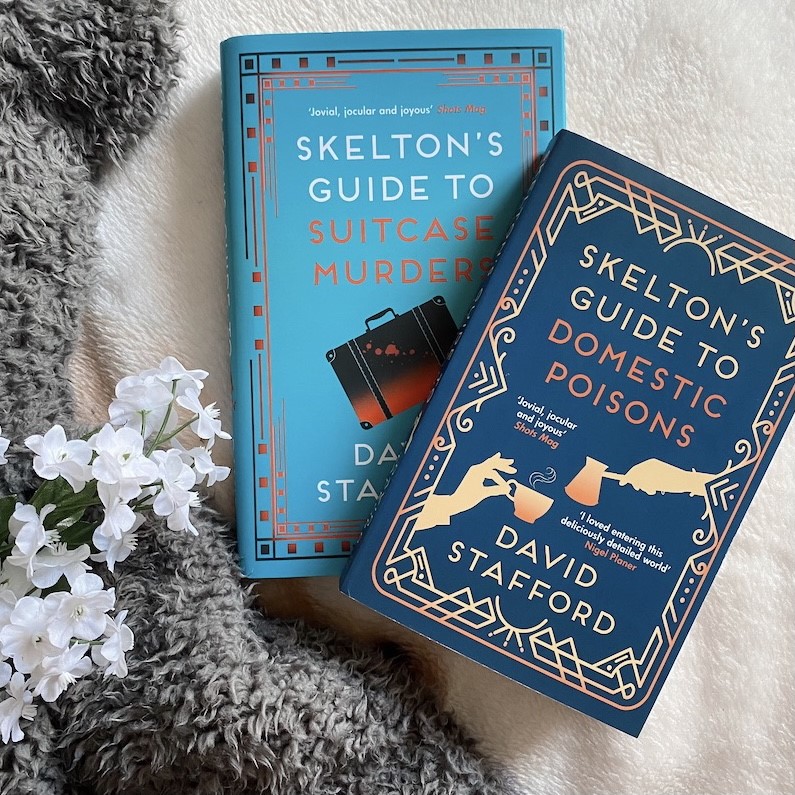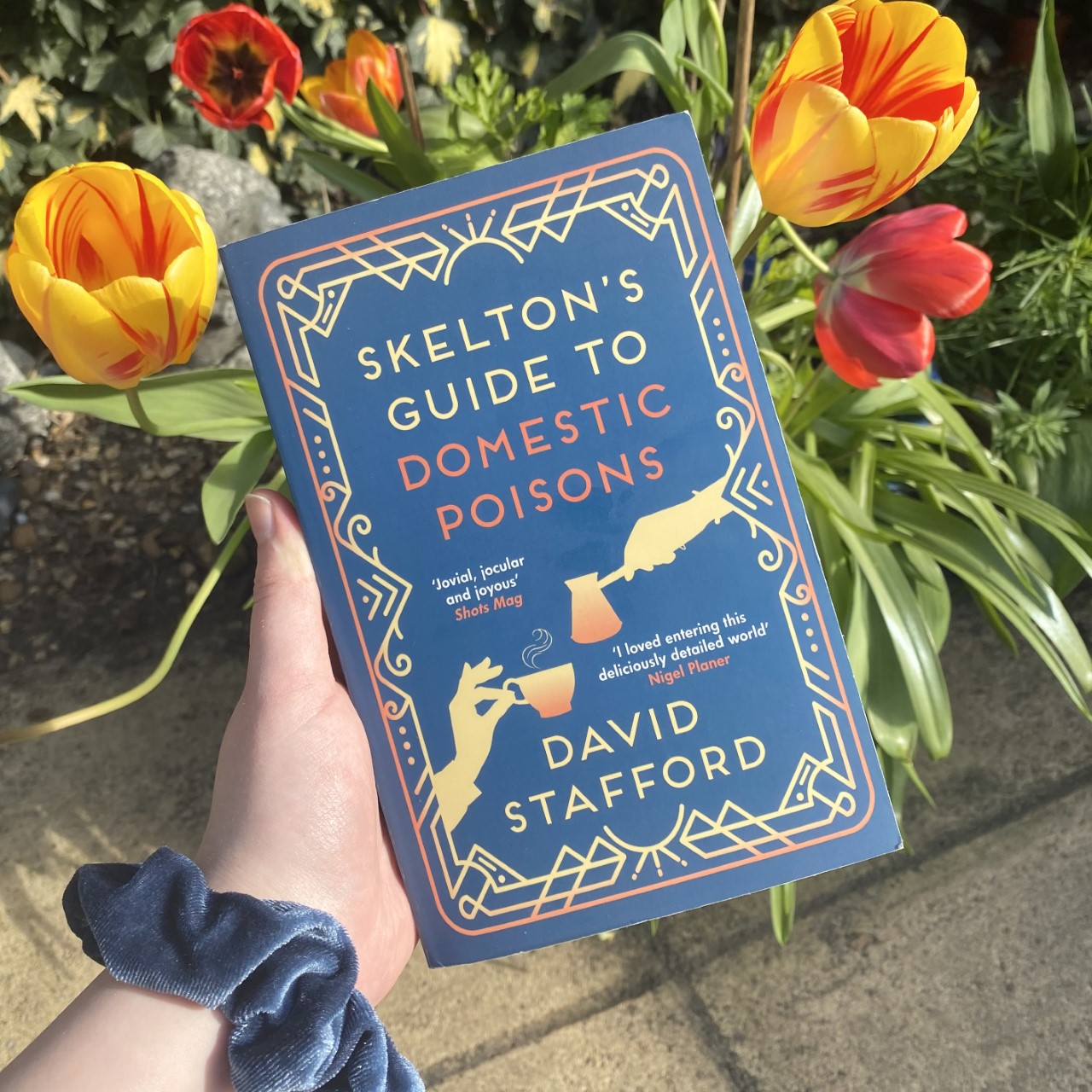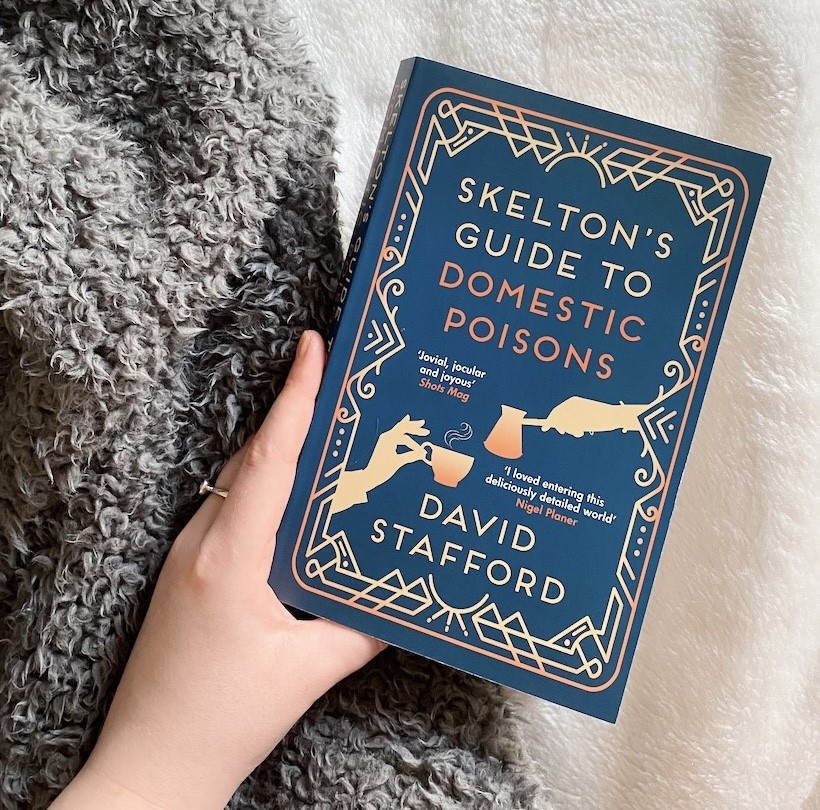*spoilers ahead*
David Stafford’s book Skelton’s Guide to Domestic Poisons belongs to the crime fiction genre. I want to start by saying I loved the setting and the historical context of this book. The blurb made me so excited to read the book that it went to the top of my TBR list instantly. This book is set in January 1929 and it’s the first time many women can vote. Arthur Skelton is known as ‘The Latter-Day Galahad’ due to his previous success on a case, marking him the most famous barrister in Britain and his face is now all over the newspapers. Ably assisted by his law clerk, Edgar, Skelton now faces a new challenge when Mary Dutton is accused of poisoning her husband. As the defendant is a woman and her punishment would be death by hanging, the outcome of this new case is not only life or death for Mary but will also have a great impact on Britain’s political future.
I was more connected to this book as I learned that Skelton and his wife Mila live in Berkshire. As this is where I also live, I recognised the names of towns and other places in their surroundings and so it was nice to have an idea of what these places look like in reality. As I discovered more about Skelton and his time as a barrister, I was getting Sherlock Holmes vibes in the way he was being portrayed. Skelton is a very stereotypical English gentleman that had a simple mission: to see Mary Dutton free. The discussion of politics is very accurate to the time and it is clear how prominent the Labour and Conservative divide was, especially when women were finally allowed to vote.
Every couple of chapters there would be sections dedicated to letters from Skelton’s cousins that would help investigate the Dutton case by being undercover. Unfortunately, I found that these chapters often deviated from the main story. Where the focus drifted away from the Dutton case, I found this disrupted the pace and made the story a little slow. However, I enjoyed how the chapters were short and so I always felt encouraged to read the following chapter after these parts as I wanted to see how it contributed to the main story.
However, I do feel as if my prior excitement to reading this book wasn’t matched by the time I finished Domestic Poisons. The ending was very sudden, without giving closure to the many questions introduced throughout the book. As I was reading, I could see I was getting towards the end of the book however the story was not progressing at the same speed. There were many dead ends throughout the book, and I had hoped this would lead to a revolutionary discovery, but again, this did not happen. Even at the end of the book, I felt as if there was unnecessary detail being shared that were not relevant explicitly to the outcome of the Mary Dutton case. As this is the main premise of the book, my main question as the reader was who actually killed Mary’s husband. Unfortunately, the truth is never revealed.
I was expecting the court case with Mary Dutton to be the watershed in this book, but this was covered very quickly, without much depth. I hoped there would be a lot of shock value, but I felt this was entirely missing. With the narrative Skelton decided to go with in court, I did not believe to be entirely viable and so I am surprised that a jury, one that was so against Mary in the first place, believed this to be true. I found the pacing of Domestic Poisons quite slow and odd in places where key events were glossed over quickly compared to other sections which had unnecessary detail.
The most disappointing aspect for me is that Skelton did not seem interested in finding out the truth. I understood that his priority was getting Mary Dutton free, which he was successful in, but due to the way his personality had been developed throughout the book, it didn’t sit right with me that Skelton was content that he never found out the truth. I found Domestic Poisons to lack detail on aspects of the book you really wanted to know about. Personally, it is frustrating to read that Skelton essentially gave up just to find a narrative that would work in court. This is a shame as he was portrayed to be the best barrister in Britain.
Stafford has also released the second book in this series called Skelton’s Guide to Suitcase Murders. As there was a lot of discussion around certain characters and their past in Domestic Poisons that was not entirely relevant to the Dutton case, I am hoping this will improve in the second book. I also want to note I love the covers of both books by Stafford and I believe the publishers, Allison & Busby, did a great job in giving the books a sleek, eye-catching design that go well together. However, I think I will take a break before reading the second book, but I would like to read it in due course to see how they compare.

I think my disappointment for Domestic Poisons grows as I had such high hopes after reading the book description. As I was reading the book, I was looking for the classic ‘whodunit’ story but unfortunately what I hoped was the answer, never transpired. Due to the books pacing, it took me a while to get through. I am usually a fan of crime, thriller, and mystery books but I think I have discovered I enjoy more intense and fast-paced stories. With that being said, Domestic Poisons is an easy to read book and I am glad I read something different to what I usually pick up in terms of historical fiction. However, for me, there was too much un-answered mystery.
I also want to thank Allison and Busby for sending me this book and allowing me to review it.
2/5 stars


Leave a comment